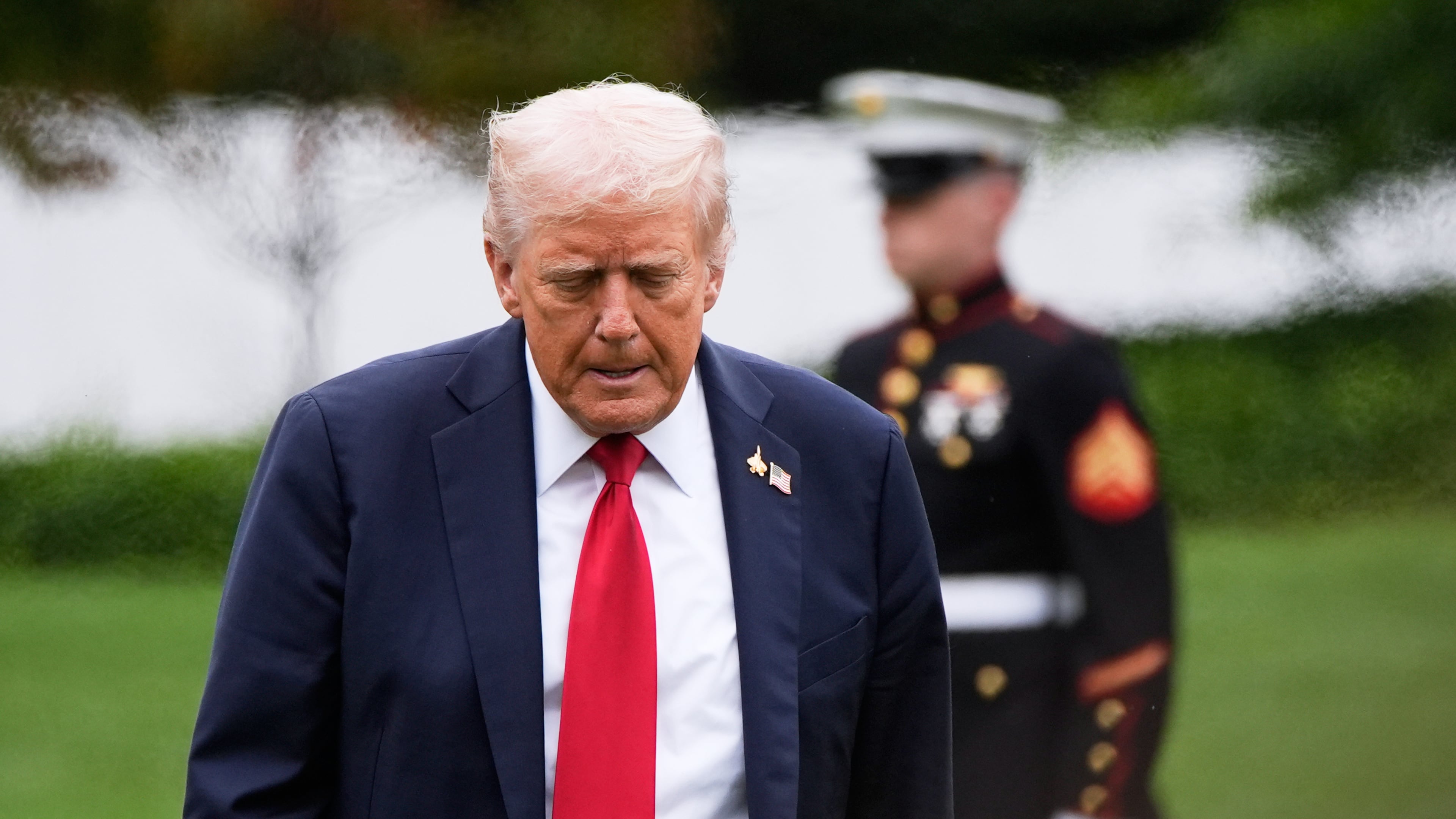Trump says US is in 'armed conflict' with drug cartels after ordering strikes in the Caribbean

WASHINGTON (AP) — President Donald Trump has declared drug cartels to be unlawful combatants and says the United States is now in an "armed conflict” with them, according to a Trump administration memo obtained by The Associated Press on Thursday, following recent U.S. strikes on boats in the Caribbean.
The memo appears to represent an extraordinary assertion of presidential war powers, with Trump effectively declaring that trafficking of drugs into the United States amounts to armed conflict requiring the use of military force — a new rationale for past and future actions.
“The President determined that the United States is in a non-international armed conflict with these designated terrorist organizations,” the memo says. Trump directed the Pentagon to “conduct operations against them pursuant to the law of armed conflict.”
“The United States has now reached a critical point where we must use force in self-defense and defense of others against the ongoing attacks by these designated terrorist organizations,” the memo says.
It signals a potential new moment not just in the administration’s willingness to reach beyond the norms of presidential authority to wage war, but in Trump's stated “America First” agenda that favors non-intervention overseas. It also raises stark questions about how far the White House intends to use its war powers and if Congress will exert its authority to approve — or ban — such military actions.
Declaration follows strikes on boats in the Caribbean
The U.S. military last month carried out three deadly strikes against boats in the Caribbean that the administration accused of ferrying drugs. At least two of those operations were carried out on vessels that originated from Venezuela.
Those strikes followed up a buildup of U.S. maritime forces in the Caribbean unlike any seen in recent times.
The memo did not include a timestamp, but it references a Sept. 15 U.S. strike that “resulted in the destruction of the vessel, the illicit narcotics, and the death of approximately 3 unlawful combatants.”
“As we have said many times, the President acted in line with the law of armed conflict to protect our country from those trying to bring deadly poison to our shores, and he is delivering on his promise to take on the cartels and eliminate these national security threats from murdering more Americans,” White House deputy press secretary Anna Kelly said.
The Pentagon referred questions to the White House.
Pentagon officials briefed senators on the strikes Wednesday, according to a person familiar with the matter, who was not authorized to comment publicly and spoke on the condition of anonymity.
What the Trump administration laid out at the classified briefing at the Capitol was perceived by several senators as pursuing a new legal framework that raised questions particularly regarding the role of Congress in authorizing any such action, that person said.
The memo lays out a rationale seen both as the administration's justification for the military strikes it has already taken on the boats in the Caribbean — which have raised concerns from lawmakers as potentially unlawful — as well as any forward action to come.
Details weren't given on the cartels targeted
Trump has designated several Latin American drug cartels as foreign terrorist organizations and the administration had previously justified the military action as a necessary escalation to stem the flow of drugs into the United States.
Pentagon officials could not provide a list of the designated terrorist organizations at the center of the conflict, a matter that was a major source of frustration for some of the lawmakers who were briefed, according to the person familiar with the matter.
While “friendly foreign nations have made significant efforts to combat these organizations,” the memo said, the groups “are now transnational and conduct ongoing attacks throughout the Western Hemisphere as organized cartels.” The memo refers to cartel members as “unlawful combatants.”
As the Republican administration takes aim at vessels in the Caribbean, lawmakers of both major political parties have raised objections and pressed Trump to go to Congress and seek war powers authority for such operations.
The first military strike, carried out Sept. 2 on what the Trump administration said was a drug-carrying speedboat, killed 11 people. Trump claimed it was operated by the Tren de Aragua gang, which was listed by the U.S. as a foreign terrorist organization this year.
Several senators as well as human rights groups questioned the legality of Trump’s actions. They called it potential overreach of executive authority in part because the military was used for law enforcement purposes.
The Trump administration has yet to explain how the military assessed the boats’ cargo and determined the passengers’ alleged gang affiliation before the strikes.
Sen. Jack Reed of Rhode Island, the top Democrat on the Senate Armed Services Committees, said the drug cartels are “despicable and must be dealt with by law enforcement.”
"The Trump Administration has offered no credible legal justification, evidence, or intelligence for these strikes,” said Reed, a former Army officer who served in the 82nd Airborne Division.
___
Associated Press writer Konstantin Toropin contributed to this report.

